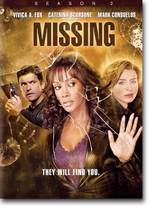Authors everywhere are getting their royalty statements in the mail, sparking a lot of blog talk about money. Bestselling novelist Tess Gerritsen says you don’t need to look at an author’s royalty statement to figure out how much he’s probably making:
If you follow the announced deals in PUBLISHERS WEEKLY or the
online website PUBLISHERS MARKETPLACE, you’ll start to get an inkling
of what multi-published authors are getting. But you can also guess,
knowing typical royalty rates, what an author is probably worth in real
dollars. With major publishers, hardcover royalties tend to run around
12 – 15% and paperback royalties tend to be around 6- 10% of cover
price. So a writer who’s sold 25,000 hardcover copies has earned
$75,000 in royalties in hardcover sales alone, and his next book deal
should certainly reflect that. His next advance should be, at a bare
minimum, $75,000. (And we’re not even talking about paperback earnings
yet, which will be on top of that.) More likely, the next advance will
take into account continued growth, and will probably reach well into
six figures.
But once you get into the stratosphere of NYT-bestselling authors, the
numbers may no longer be anchored to real sales figures, but may soar
much much higher. From my own observations of the business, authors who
consistently place in the bottom third of the NYT list (Positions # 11
– 15) are worth at least a million dollars a book, North American
rights. We’re talking combined hard/soft deals here, since most
publishers now retain paperback rights. If you consistently place
#6-10, your deals go even higher, into multi-million dollar range. Once
your books consistently place in the top third, the deals become wildly
unpredictable, because now we’re talking Harry Potter and Dan Brown
territory. Eight-figure book deals are not out of the question.
Of course, what you get really depends on how good your agent is. Novelist Laurie King left this comment on my post about author Sara Donati’s royalty chat:
[A] typical royalty division (for regularly discounted books sold in the US
market) is along the lines of 10 percent for the author on the first
5000 books sold, 12 1/2 percent on the next 5000, and after that 15
percent. Or more if, as you say, your numbers mean you can dictate to
your publisher what you want. Then 7 1/2 percent on trade paperback, 10
percent on mass market.

